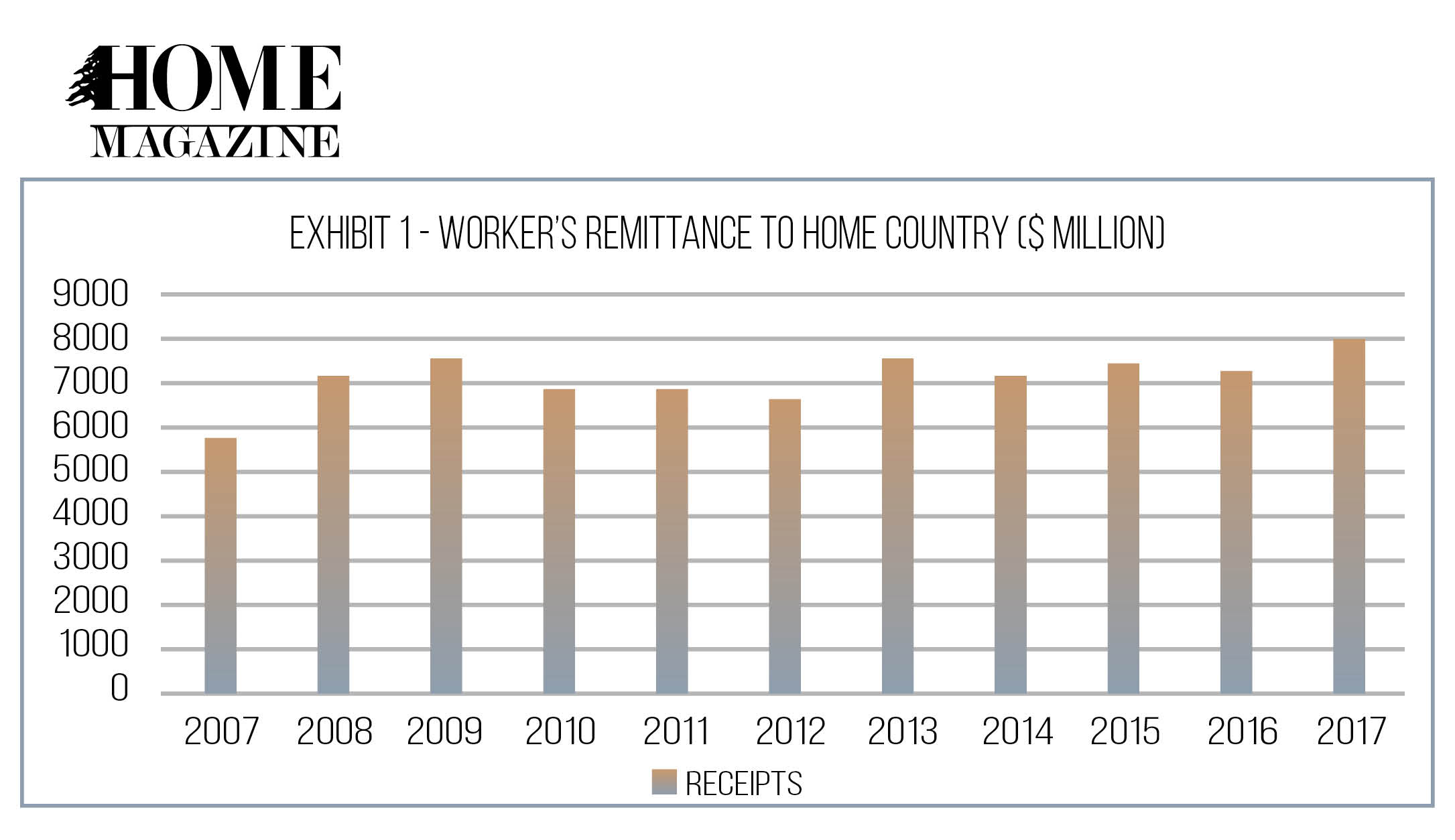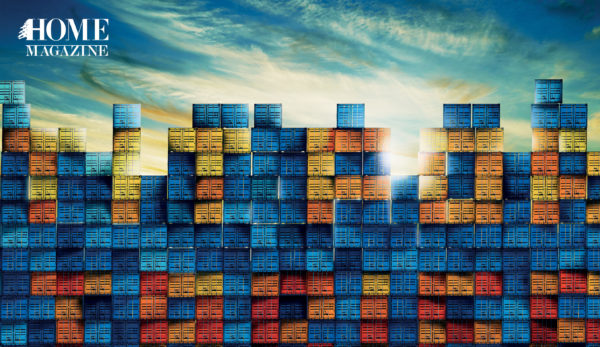Lebanon has always been subjected to political, security, financial and economic adversities. Ever since its independence in the early ‘40s of the past century, the country has faced periodic internal as well as regional tensions and hiccups that have marred its progress and development process.
Yet, amazingly, the country has time and again managed to muddle through the difficulties confronting it. This resilience has not been because of a sound economic structure; neither has it been ingrained in prudent economic policy. It is rather a blessing coming partly from the Lebanese diaspora, and the country’s ability to secure political and financial assistance from rich Arab Gulf Cooperation Countries and the international community, which has safeguarded the nation from collapsing at various stages.
The Lebanese people, spread throughout the five major continents, constitute a life-support system to their families back HOME, and thereby to the Lebanese economy at large. Workers’ remittances, transfers of money by workers abroad to individuals in their HOME country, amounted to nearly $8 billion in 2017, representing around 15 percent of Gross Domestic Product (GDP), which is the highest in the Arab region and one of the highest in the world (see Exhibit 1). Over and above, an environment conducive to doing business, Lebanon also attracts additional large amounts of funds from Lebanese throughout the globe to be invested in their HOMEland. In this regard, it is refreshing to see the efforts made by the government recently to engage Lebanese and people of Lebanese descent in building up the country through channeling investments into its economy. The Lebanese Diaspora Energy Forum (LDE) and the follow-up activities are welcome steps and ought to continue and intensify.
There are ample investment opportunities in Lebanon for Lebanese abroad in various sectors, namely tourism, energy and agriculture, either directly or through public-private partnerships (PPPs), especially in light of the capital investment program that Lebanon presented to the international community at Cedre conference that was held in Paris in early April 2018. The conference helped the country secure aid pledges exceeding $11 billion in international support for an ambitious and much-needed investment program to stimulate economic growth and create job opportunities. Naturally, proper implementation of these projects in the next few years would help the country regain the high growth rates it enjoyed in the 2007 to 2010 period when GDP registered real growth rates of 8 percent to 9 percent, compared with the current low 1 percent to 1.5 percent growth rates. The investment program comprises projects mainly in infrastructure, environment and energy, including road networks around the capital, transportation, communication and tourism.
In addition to the major support of the Lebanese diaspora, the country, owing to its political and religious diversity, has developed a wide-ranging regional and global network of friends over the years. This has proven advantageous at various stages, not least in the country’s ability to garner valuable support in international conferences organized to boost the country’s economic development. Prior to the Cedre conference, a number of similar conferences have been held since year 2001, when the first Paris conference, held in February 2001, provided Lebanon with modest donations below $1 billion. In Paris II, held in November 2002 and attended by 23 countries and international institutions, financial and project aid exceeded $5 billion. Paris III took place in January 2007 and Lebanon received pledges of $7.6 billion worth of loans and grants. Nevertheless, unfortunately, the country has failed to parlay this unique strength into sustained prosperity.
Another element of strength and potential for Lebanon is the gas reserves in its territorial waters, estimated at around 12-25 trillion cubic feet, in addition to 440-675 million barrels of oil. This sector is expected to create tens of thousands of job opportunities, with significant positive spillover effects on a large number of sectors of the economy.
“Lebanon is now at a crossroads to regaining its past glory or falling into an abyss.”
However, the new government ought to speed up the process and sign more offshore oil and gas exploration and production agreements and expedite drilling.
It is hoped that, in light of the new parliamentary elections and the expected formation of a new government, the investment program agreed upon and presented at the recent Cedre conference will be carried out efficiently and effectively, along with the reforms and structural adjustment measures associated with it. These policy measures and structural reforms are essential for sustained growth and macroeconomic stability in Lebanon. As such, the only palpable options for the country are to make reform and stop the protracted imbalances.
Is this a wild pitch? I say no, provided the country takes its pledges made at the international conferences seriously. Real reform requires actual achievements, not empty promises and platitudes. In other words, without a genuine political commitment to put in place a structural adjustment program allowing administrative reform and dismantling barriers toward greater private sector development, the Lebanese economy will not enjoy sustainable development.

The way forward
Once dubbed as the “Switzerland of the East” and considered a paragon for tolerance, modernity and freedom in the Middle East region, Lebanon is now at a crossroads to regaining its past glory or falling into an abyss. What has been happening in the past few years has been a fervent wake-up call. The message is simple: absent profound progress on political and economic reform, the country will eventually face disruptive social unrest. Nevertheless, the country is not ordained to instability.
True, a lot is needed to put it back on track, but what I would consider the most important underlying factor for achieving sustainable socioeconomic progress is the need to establish adequate institutional frameworks to instill a culture of the rule of law, accountability especially in the public sector and SOEs (state-owned enterprises), and sound legal and regulatory frameworks. Without this basic requisite, Lebanon will not be able to reach its potential and better manage its financial, human and natural resources, as well as generate economic growth and true development.
Is there a silver lining? Looking ahead, Lebanon’s future appears promising. There are a number of encouraging signs. The support of the international community has not been limited to the economic arena. It is no secret that Lebanon’s ability to maintain its relative stability in the midst of the turmoil in the region would not have been possible without an international decision. In turn, the parliamentary elections have stirred the political stalemate and created a new political momentum.
Furthermore, and despite all odds, Lebanon enjoys great human capital resources, and a capable and solid financial system. The requisite for the rising of the Lebanese Phoenix is a noticeable change in the political stalemate and the ability to break the Lebanese political logjam on both domestic and regional issues.

































